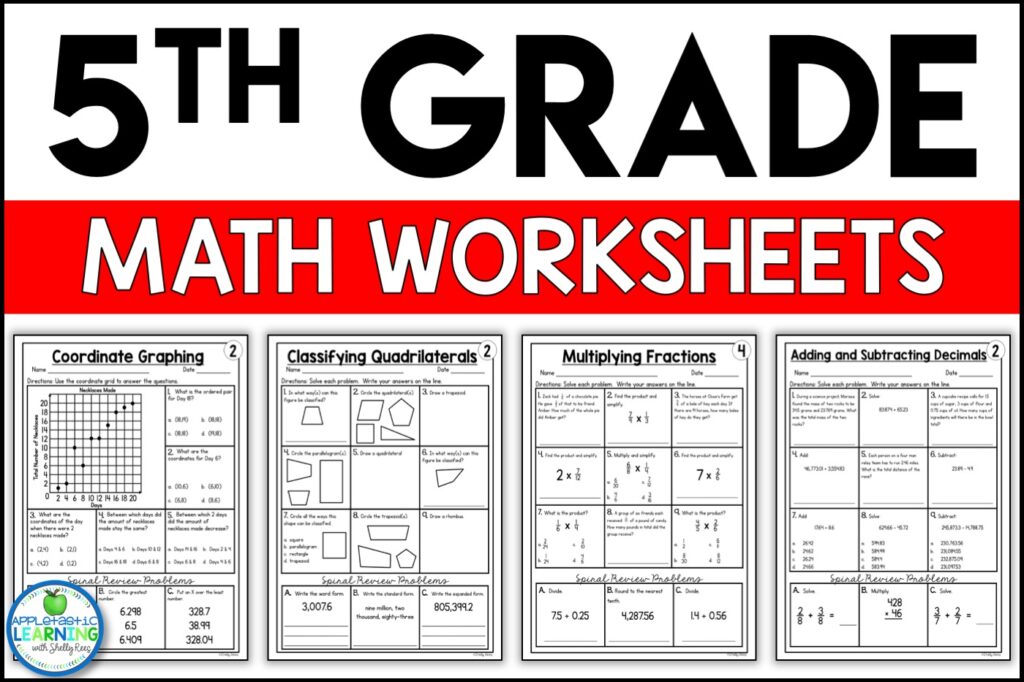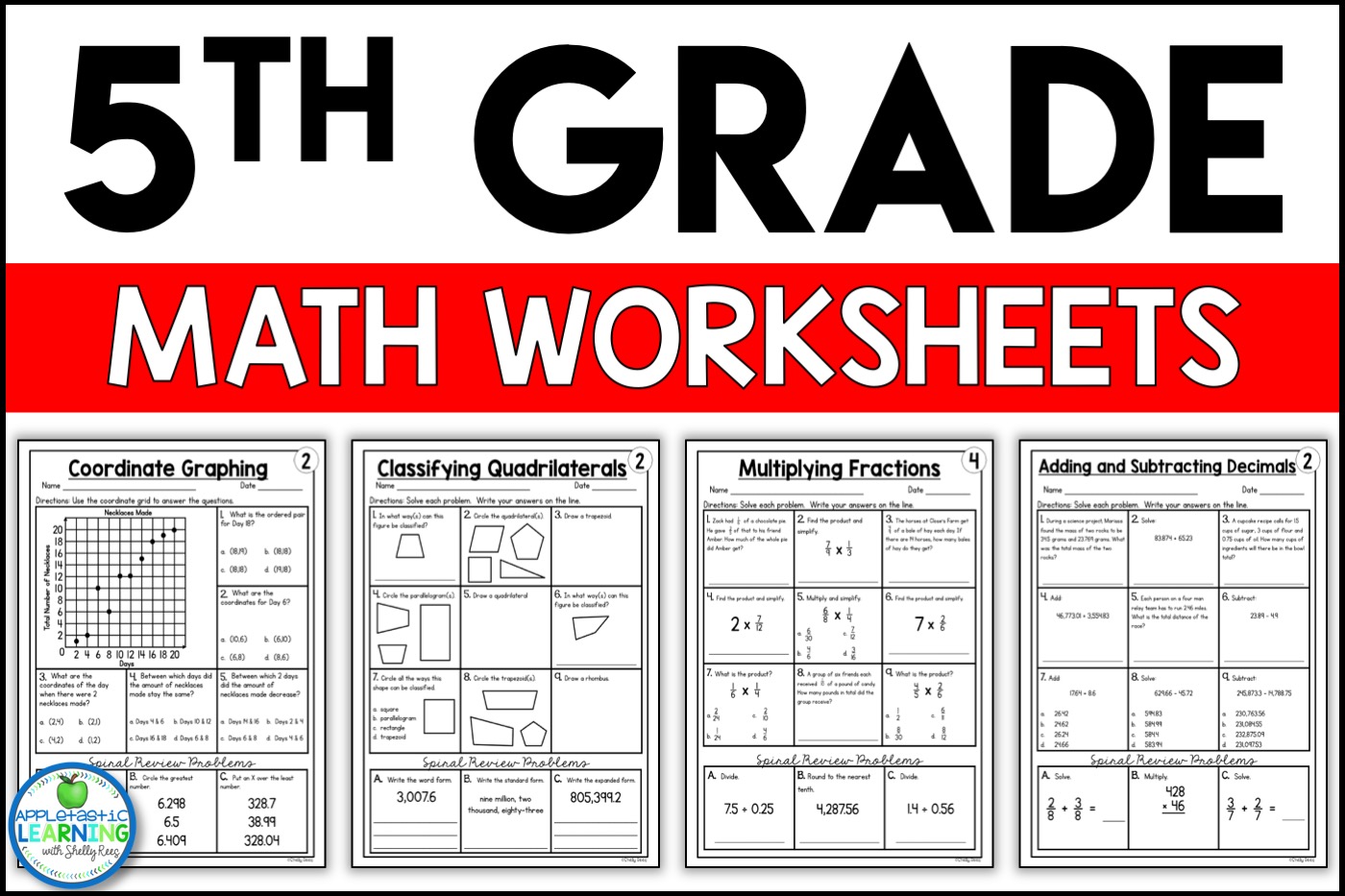
Navigating Fifth Grade: A Comprehensive Guide for Parents and Educators
Fifth grade marks a significant transition in a child’s educational journey. It’s a year of increased academic rigor, growing social awareness, and developing independence. Understanding the challenges and opportunities that come with being a fifth grader is crucial for parents and educators alike. This comprehensive guide aims to provide insights into the academic expectations, social-emotional development, and practical tips for supporting fifth graders in their journey.
Academic Expectations in Fifth Grade
The fifth grade curriculum typically focuses on building a strong foundation in core subjects. Here’s a breakdown of what to expect in each area:
Reading and Language Arts
Fifth graders are expected to read more complex texts and analyze them critically. They should be able to identify themes, understand character development, and draw inferences. Writing skills are also emphasized, with students learning to write persuasive essays, informative reports, and narrative stories. Grammar and vocabulary development are integral parts of the curriculum.
- Reading comprehension: Analyzing text structure, identifying author’s purpose, and drawing conclusions.
- Writing: Developing strong paragraphs, using transitions effectively, and supporting arguments with evidence.
- Grammar: Mastering parts of speech, sentence structure, and punctuation.
- Vocabulary: Expanding word knowledge through reading and direct instruction.
Mathematics
In math, fifth graders delve deeper into fractions, decimals, and geometry. They learn to perform operations with fractions, convert between fractions and decimals, and solve multi-step word problems. Geometry concepts include understanding area, perimeter, and volume. The introduction to algebraic thinking also begins in fifth grade.
- Fractions: Adding, subtracting, multiplying, and dividing fractions and mixed numbers.
- Decimals: Performing operations with decimals and converting between fractions and decimals.
- Geometry: Calculating area, perimeter, and volume of various shapes.
- Algebraic Thinking: Introduction to variables and simple equations.
Science
Fifth grade science often covers topics such as ecosystems, the human body, and the solar system. Students learn about the interconnectedness of living things, the functions of different body systems, and the characteristics of planets. Hands-on experiments and investigations are common, encouraging scientific inquiry and critical thinking.
- Ecosystems: Understanding food chains, food webs, and the impact of environmental changes.
- Human Body: Learning about the different organ systems and their functions.
- Solar System: Studying the planets, their characteristics, and their movements.
Social Studies
Social studies in fifth grade typically focuses on American history, geography, and civics. Students learn about the exploration and colonization of America, the American Revolution, and the formation of the United States government. Understanding the rights and responsibilities of citizens is also emphasized. They explore maps and globes to understand the geography of the United States and other countries.
- American History: Studying key events and figures in American history.
- Geography: Learning about the physical and human geography of the United States.
- Civics: Understanding the principles of American democracy and the role of citizens.
Social-Emotional Development of Fifth Graders
Beyond academics, fifth grade is a time of significant social and emotional growth. Children at this age are becoming more aware of their peers and their place in the social hierarchy. They are also developing a stronger sense of self and independence. Understanding these developmental changes is crucial for supporting fifth graders in navigating their social and emotional lives.
Peer Relationships
Peer relationships become increasingly important in fifth grade. Children are more concerned with fitting in and being accepted by their peers. Cliques and social groups may start to form, and students may experience peer pressure. It’s important to encourage positive social interactions and help fifth graders develop skills for navigating social situations.
Self-Esteem and Confidence
Fifth grade can be a challenging time for self-esteem and confidence. As children become more aware of their strengths and weaknesses, they may start to compare themselves to others. It’s important to provide opportunities for fifth graders to succeed and build their confidence. Praise effort and progress, rather than just focusing on results.
Independence and Responsibility
Fifth graders are developing a stronger sense of independence and responsibility. They want to make their own choices and take ownership of their actions. It’s important to provide opportunities for fifth graders to take on more responsibility, both at home and at school. This can include assigning chores, allowing them to make choices about their schoolwork, and encouraging them to advocate for themselves.
Supporting Fifth Graders: Tips for Parents and Educators
Supporting fifth graders requires a collaborative effort between parents and educators. Here are some practical tips for helping fifth graders succeed:
Communication
Open and honest communication is essential. Parents should communicate regularly with teachers to stay informed about their child’s progress. Teachers should communicate with parents about any concerns they have about a student’s academic or social-emotional development. Encourage children to communicate their thoughts and feelings openly.
Creating a Supportive Environment
Create a supportive and encouraging environment at home and at school. Provide opportunities for fifth graders to succeed and celebrate their accomplishments. Help them develop a growth mindset, which emphasizes effort and learning over innate ability.
Addressing Challenges
Be proactive in addressing any challenges that fifth graders may face. This can include academic difficulties, social problems, or emotional issues. Seek professional help if needed. Early intervention can make a significant difference in a child’s success.
Promoting Healthy Habits
Encourage healthy habits, such as getting enough sleep, eating nutritious meals, and exercising regularly. These habits are essential for both physical and mental well-being. Limit screen time and encourage outdoor activities.
Encouraging Extracurricular Activities
Encourage fifth graders to participate in extracurricular activities that interest them. This can include sports, music, art, or clubs. Extracurricular activities provide opportunities for fifth graders to develop their talents, build social skills, and explore their interests. [See also: Benefits of Extracurricular Activities for Elementary Students]
Fostering a Love of Learning
The most important thing is to foster a love of learning in fifth graders. Make learning fun and engaging. Connect learning to real-world experiences. Encourage curiosity and exploration. A positive attitude towards learning will help fifth graders succeed throughout their academic careers.
The Importance of Parental Involvement
Parental involvement plays a crucial role in the success of fifth graders. When parents are actively involved in their child’s education, children are more likely to succeed academically and socially. Parental involvement can take many forms, such as helping with homework, attending school events, and communicating with teachers.
Research consistently shows that children whose parents are involved in their education have higher grades, better attendance, and fewer behavioral problems. They are also more likely to graduate from high school and attend college. Parental involvement is not just about helping with homework; it’s about creating a supportive and encouraging environment that fosters a love of learning.
For a fifth grader, knowing their parents care and are invested in their education is invaluable. It provides a sense of security and motivation, helping them navigate the challenges of this important developmental stage. [See also: Strategies for Effective Parent-Teacher Communication]
Conclusion
Fifth grade is a pivotal year in a child’s education. By understanding the academic expectations, social-emotional development, and practical tips for supporting fifth graders, parents and educators can help them navigate this important transition successfully. Open communication, a supportive environment, and a focus on fostering a love of learning are key to helping fifth graders thrive.

